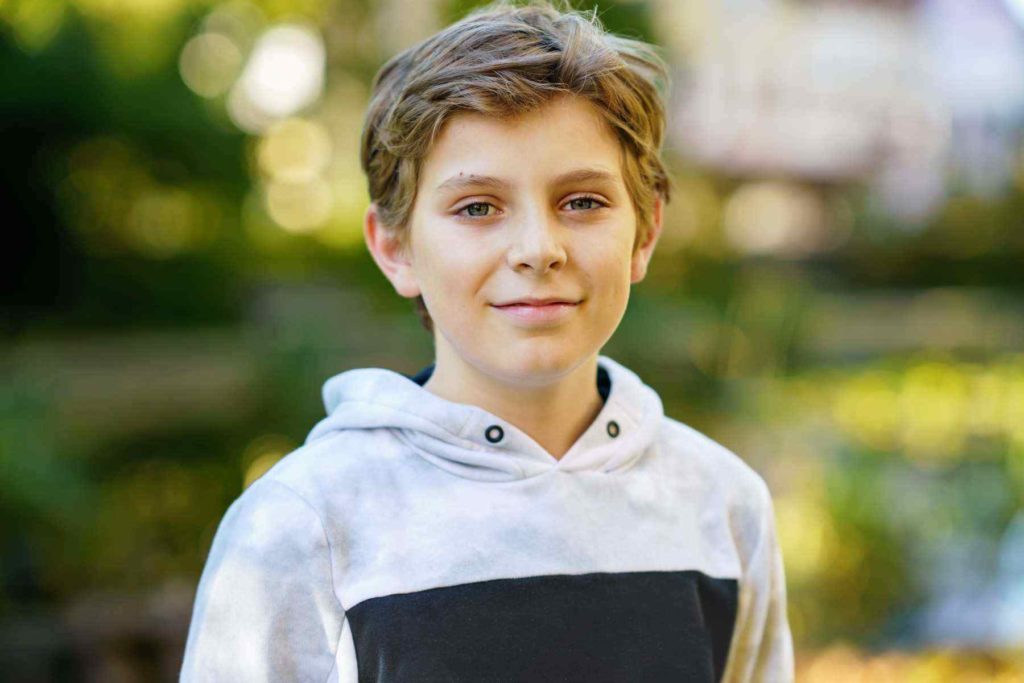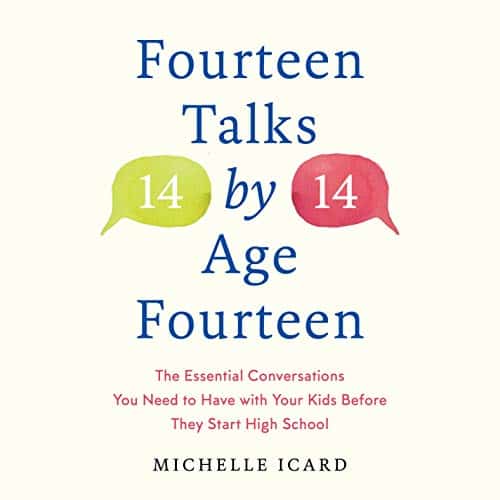
This is a contributed post from Nik Bowers, a middle school expert teaching parents and tweens to build critical skills now so high school and adulting is easier. Follow her on Instagram
Kids often act as expected in front of adults, but when they’re alone, they let their true selves surface. Educators know this about tweens and teens, but many parents do not.
I saw this firsthand as an administrator and educational consultant in the back of classrooms, observing teachers and students for different reasons.
As a principal, in our leadership meetings, we called this behavior “compliant deviance.” Kids act as expected in front of adults, but when they’re alone, they tap into who they are in the moment. This isn’t bad—it’s part of their process of exploring who they are. But when adults only focus on kids’ outward behavior, we miss what matters: their inner character.
In July 2014, the Harvard Graduate School of Education conducted a study as part of their “Making Caring Common” project. The research revealed that a significant majority of youth, spanning various races, cultures, and socioeconomic backgrounds, prioritized personal success, achievement, and happiness over caring for others. These results lead us to ask ourselves: Are adults valuing achievements over character?
Inner Character vs. Outward Success
During puberty, kids start noticing the gap between what adults say and what they experience. I like to think about it as they can pull the curtain back of the Great Wizard Of Oz, revealing that he is just a man.
They see that our communication and actions do not always match.
Likewise, teens often feel a disconnect between their inner emotions and outward behavior. This causes a greater struggle than we realize. As parents and adults, we need to focus less on achievements and more on their values and beliefs.
We can guide them to discover their purpose, build self-respect, and understand their true selves—especially when no one is watching.
See what she says about growing responsibility here:
Parents often seek personal validation through their children’s achievements.
I remember asking students to set aside their parents’ expectations and think about what they truly wanted for themselves. Most of them couldn’t answer. That made me think—did I want my own kids to live for my approval, or build a life for themselves? What did success look like for them? Was I preparing them for the world, or trying to prepare the world for them?
I’ll never forget when my daughter, in a frustrated moment, tearfully told me, “You said ‘do your best,’ but I heard ‘be the best.’” She had internalized my words in a way I hadn’t intended.
Another time, my oldest child asked, “How can I practice anything when you always say no? Why can’t I try something for me?” That hit me hard. It mirrored what I heard from students who felt their achievements were more about pleasing their parents than pursuing their own dreams.
I realized I was, like many parents, unintentionally seeking validation for my parenting through my kids’ success. I was more focused on their outward achievements than on nurturing their inner character.
Their achievements made me feel good about my parenting because I was very insecure about my parenting every day.
Related: Dear Parents: You Are Not a Failure-It’s Just Hard Raising Teenagers
Growing their character is hard work that nobody sees, is messy, and has more failures than wins.
That’s when I flipped the script. I decided to parent from the inside out, letting my kids define success for themselves. It was risky. I had to let go of control, guiding them without dictating their paths. It wasn’t about appearances or checking off boxes—it was about helping them become the people they wanted to be, not who I wanted them to be.
6 Ways to Help Your Teens Develop Character
Puberty is a critical time for brain development, and I realized I needed to prioritize processes over outcomes. As a family, we started saying “no” to busyness and external pressures and focused on what was truly best for our kids.
Here’s what worked for us:
1. Learning in Context
Instead of assuming they knew how to navigate certain situations, we learned together. We allowed them to experience real-life challenges at home, school, and with friends. This hands-on approach helped them develop life skills.
2. Study Skills Over Grades
I stopped stressing over grades and instead focused on developing study skills. I taught them how to learn instead of what to learn.
3. Responsibility and Trust
I gave them responsibility and trusted them to handle it. Perfection wasn’t expected, and mistakes were celebrated. I’d ask, “Walk me through your process,” helping them learn problem-solving rather than seeking my approval.
4. Emotional Management
I modeled emotional regulation by failing forward with them. Together, we turned mistakes into opportunities to grow. We practiced managing emotions in the moment, and yes, it took years of practice.
5. Failing Forward
When they missed an assignment, instead of punishment, I’d ask, “How will you fix this?” This built their problem-solving abilities and helped them learn from their mistakes.
Related: All Teens Make Mistakes (Even the “Good” Ones)
6. Communication Skills
I focused on listening more than lecturing. After tough conversations, I’d ask, “What did you hear?” This allowed us to understand each other better and built stronger communication skills.
These approaches focused on personal growth and self-awareness. They started connecting the dots between their inner world and their outer actions. They became more thoughtful and independent—exactly what I’d hoped for.
Looking back, I know that real success isn’t about them being extraordinary in the world’s eyes, but about them living authentically and stepping into the lives they’ve created for themselves. That’s the kind of freedom we want for our kids—the freedom to be who they truly are, without the weight of other people’s expectations, especially their parents.
Looking for an additional resource to help you navigate the teen / tween years?

Parenting teens and tweens is a tough job, but you’re not alone. These posts might help:
10 Valuable Lessons My Teens Taught Me About Parenthood
10 Simple Ways Parents Can Help Their Teens with Executive Function Skills
This Is Why Teen Girls Are So Mean to Their Mothers
Comforting and Stress-Reducing Gifts to Help Your Anxious Teen
*This post may contain affiliate links where we earn a small commission for purchases made from our site.






ftp2ic